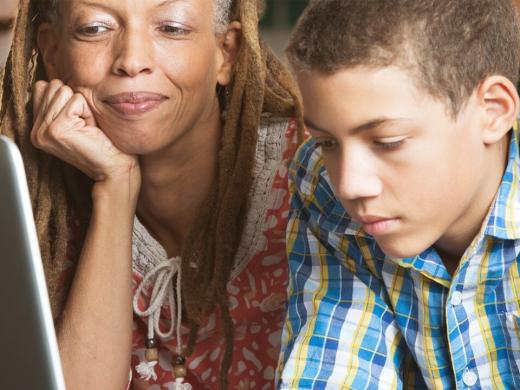Be Aware of What Your Kids are Doing Online
A child may be involved in cyberbullying in several ways. A child can be bullied, bully others, or witness bullying. Parents, teachers, and other adults may not be aware of all the digital media and apps that a child is using. The more digital platforms that a child uses, the more opportunities there are for being exposed to potential cyberbullying.
Warning Signs a Child is Being Cyberbullied or is Cyberbullying Others
Many of the warning signs that cyberbullying is occurring happen around a child’s use of their device. Some of the warning signs that a child may be involved in cyberbullying are:
- Noticeable increases or decreases in device use, including texting.
- A child exhibits emotional responses (laughter, anger, upset) to what is happening on their device.
- A child hides their screen or device when others are near, and avoids discussion about what they are doing on their device.
- Social media accounts are shut down or new ones appear.
- A child starts to avoid social situations, even those that were enjoyed in the past.
- A child becomes withdrawn or depressed, or loses interest in people and activities.
What to Do When Cyberbullying Happens
If you notice warning signs that a child may be involved in cyberbullying, take steps to investigate that child’s digital behavior. Cyberbullying is a form of bullying, and adults should take the same approach to address it: support the child being bullied, address the bullying behavior of a participant, and show children that cyberbullying is taken seriously. Because cyberbullying happens online, responding to it requires different approaches. If you think that a child is involved in cyberbullying, there are several things you can do:
- Notice – Recognize if there has been a change in mood or behavior and explore what the cause might be. Try to determine if these changes happen around a child’s use of their digital devices.
- Talk – Ask questions to learn what is happening, how it started, and who is involved.
- Document – Keep a record of what is happening and where. Take screenshots of harmful posts or content if possible. Most laws and policies note that bullying is a repeated behavior, so records help to document it.
- Report – Most social media platforms and schools have clear policies and reporting processes. If a classmate is cyberbullying, report it the school. You can also contact app or social media platforms to report offensive content and have it removed. If a child has received physical threats, or if a potential crime or illegal behavior is occurring, report it to the police.
- Support – Peers, mentors, and trusted adults can sometimes intervene publicly to positively influence a situation where negative or hurtful content posts about a child. Public Intervention can include posting positive comments about the person targeted with bullying to try to shift the conversation in a positive direction. It can also help to reach out to the child who is bullying and the target of the bullying to express your concern. If possible, try to determine if more professional support is needed for those involved, such as speaking with a guidance counselor or mental health professional.
-
How to Prevent Cyberbullying

This guide helps parents, caregivers, and youth learn ways to identify, prevent, and address cyberbullying.

